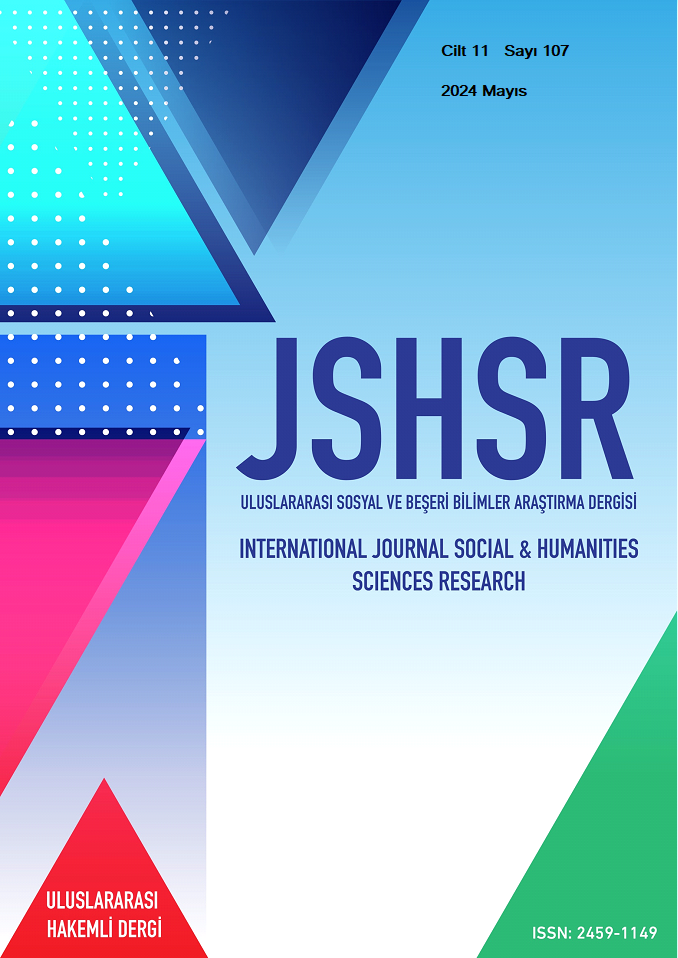Examination of Global Climate Form and Enviromental Problems in Secondary School Science Textbooks According to Didactic Transformation Theory
DOI:
https://doi.org/10.5281/zenodo.11404074Keywords:
Science Education, Didactic Transformation Theory, Global Climate Change, Environmental Problems, TextbookAbstract
The theoretical framework that explains all the elements that affect scientific knowledge until it becomes knowledge assimilated by students can be considered a didactic transformation. The first step of this transformation, external didactic transformation, refers to the transformation of scientific knowledge into the knowledge to be taught. Textbooks serve as important materials that enable students to acquire the objectives, qualifications and contents aimed at the curriculum. For effective science teaching, textbooks are expected to be appropriate to the level of the students, contribute to the achievement of the achievements of the curriculum, contain rich visual elements that will motivate students to the lesson, and have well-prepared measurement and evaluation activities. This study aims to examine and evaluate the subject of global climate change and environmental problems in the 5th, 6th, 7th and 8th grade Secondary School Science textbooks in terms of external didactic transformation. For this purpose, the document analysis method, which is one of the qualitative research designs, was used. The textbooks were examined in terms of two features related to the relevant field of science: scientific content and visual elements. As a result of the research, it was seen that information about global climate change and environmental problems was extensively included in the 5th Grade Science Textbook within the scope of environmental problems, but no information was given about global warming, which is the main cause of global climate change. It is noteworthy that in the 6th Grade Science Textbook, global warming and greenhouse gases are mentioned only as reading text, without using any visual elements. It has been observed that in the 7th Grade Science Textbook, the subject of recycling is generally covered and information about global warming, which is the main cause of global climate change, is included superficially. It has been observed that the 8th Grade Science Textbook includes intensive coverage of global climate change and environmental problems. On the other hand, it has been observed that textbooks contain very limited information about the measures that should be taken to minimize the possible effects of global climate change in the near future. Considering the results of the research, some suggestions are presented for Science textbooks and Science course curricula.
References
Aksu, M., Temeloğlu, E., Özkaya E., & Gündeğer, M. (2012). Lise düzeyinde turizm eğitimi alan öğrencilerin turizm ve çevre bilinci üzerine bir araştırma. Düzce Üniversitesi Sosyal Bilimler Enstitüsü Dergisi, 2(2), 42-61.
Ata Özer, A. & Yaman, H. (2021). 8. sınıf matematik konularına göre Türkiye, Singapur ve ABD matematik ders kitaplarının içerik ve görsellik açısından karşılaştırılması. Bolu Abant İzzet Baysal Üniversitesi Eğitim Fakültesi Dergisi, 21(4), 1359- 1377.
Bosch, M., Chevallard, Y. & Gascon, J. (2005). Science or magic? The use of models and theories in didactics of mathematics. Fourth Congress of The European Society for Research in Mathematics Education, 1254-1263.
Eryılmaz, Ö. (2021). Ortaokul sosyal bilgiler ders kitaplarında küresel iklim değişikliği konusunun yer alma durumu. Anadolu Üniversitesi Eğitim Fakültesi Dergisi, 5(4), 385-401.
Köseoğlu, F., Atasoy, B., Kavak, N., Akkuş, H., Budak, E., Tümay, H., Kadayıfçı, H., & Taşdelen, U., (2003). Yapılandırıcı öğrenme ortamı için: bir fen ders kitabı nasıl olmalı. Asil Yayın Dağıtım.
Oğuz, D., Çakıcı, I., & Kavas, S. (2011). Yükseköğretimde öğrencilerin çevre bilinci. Süleyman Demirel Üniversitesi Orman Fakültesi Dergisi, 12, 34-39.
Özdemir, O. (2010). Doğa deneyimine dayalı çevre eğitiminin ilköğretim öğrencilerinin çevrelerine yönelik algı ve davranışlarına etkisi. Pamukkale Üniversitesi Eğitim Fakültesi Dergisi, 27, 125-138.
Yıldırım, A. & Şimşek, H. (2011). Sosyal bilimlerde nitel araştırma yöntemleri (8. Baskı). Seçkin Yayıncılık.
Downloads
Published
How to Cite
Issue
Section
License
Copyright (c) 2024 INTERNATIONAL JOURNAL OF SOCIAL HUMANITIES SCIENCES RESEARCH

This work is licensed under a Creative Commons Attribution 4.0 International License.


